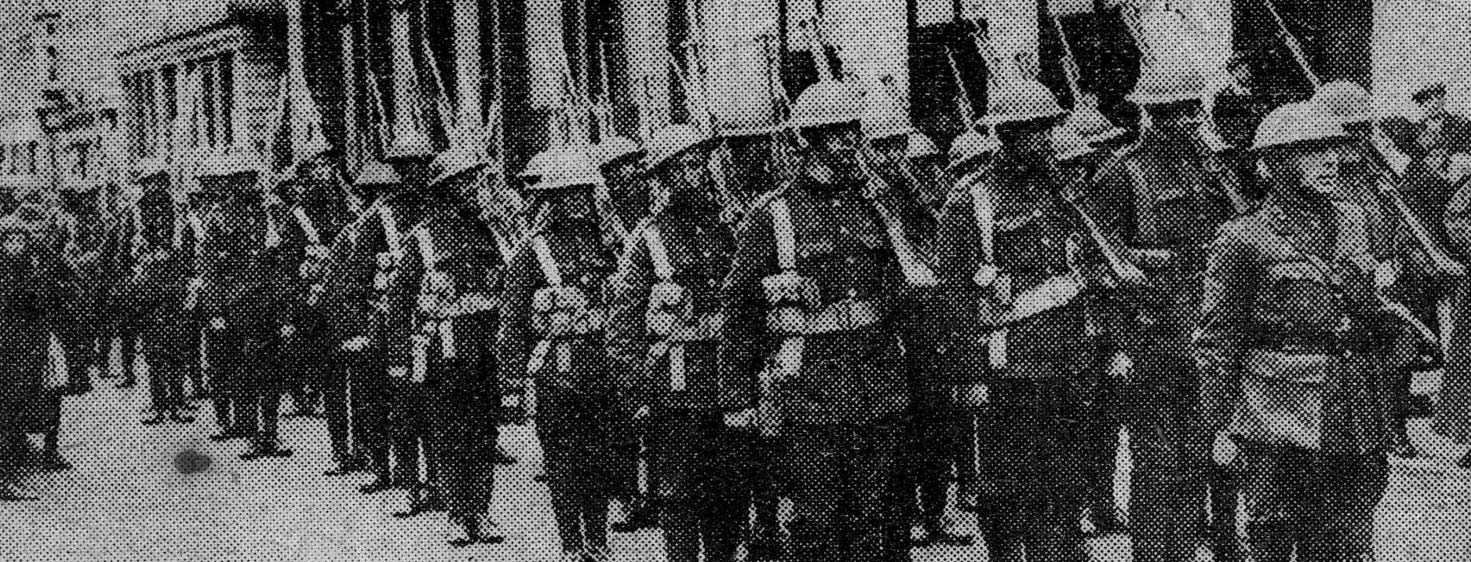Seven areas in a ‘state of disturbance’ as violence spreads around Ireland
Cork, 12 April 1919 - The levels of social and political unrest across Ireland are growing, and as a result seven areas have now been proclaimed as being ‘in a state of disturbance’ and are in need of ‘an additional establishment of police’.
The areas covered by the proclamations are – Cork City, Cork County (east and west), Roscommon, Tipperary (north and south), Limerick City, Limerick County, Kerry and the Westport urban district, which encompasses the adjoining districts of Westport Rural and Kilmeena.
In one of the proclaimed areas, Co. Cork, three policemen were shot with pellets in the Eyeries district while patrolling at night. The policemen – one sergeant and two constables – were walking along the Castletownbere Road, when the shots were fired from a distance. While the shots struck the men, none of their injuries are thought to be serious.
Dublin
In Dublin, which is not covered by the proclamations, the homes of
two Dublin Metropolitan Police detectives were raided by armed
men.
One of the homes attacked was that of Sergeant Halley on Norfolk Road. He was not present when the masked men arrived but came home while the raid was in progress. He was met by a man standing in front of his door holding a revolver, shouting ‘Hands up’.
The sergeant removed his own revolver from his pocket, a shot was fired and the intruder set off down the street followed by a number of men who emerged from the house, which had been ransacked. Nobody was injured.
Around a half an hour later, in nearby Glengarriff Park, Detective Officer O’Brien, was bound and searched by assailants and left lying on the road. His property was not attacked.
No arrests have been made in relation to either attack, which have caused a local sensation in the Phibsboro area, where police numbers have since been increased.
Clare
In Co. Clare, shots were exchanged with the police, when a party
of 40 to 50 young men marched in military formation following mass
at Knockarra, about four miles from Kilrush.
Constables McDermott and Hanlon of the RIC, both armed with rifles, observed the marchers from the roadside, with Sergeant Donoghue positioned further up the road.
The marching party turned on the two constables and took their rifles. A shot was fired at Sergeant Donoghue, who returned fire at the crowd using his revolver. It is understood that nine or 10 shots were fired in all. The rifles were later retrieved and a number of men were arrested, among them Arthur O’Donnell, commandant of the local Volunteers.
[Editor's note: This is an article from Century Ireland, a fortnightly online newspaper, written from the perspective of a journalist 100 years ago, based on news reports of the time.]





















